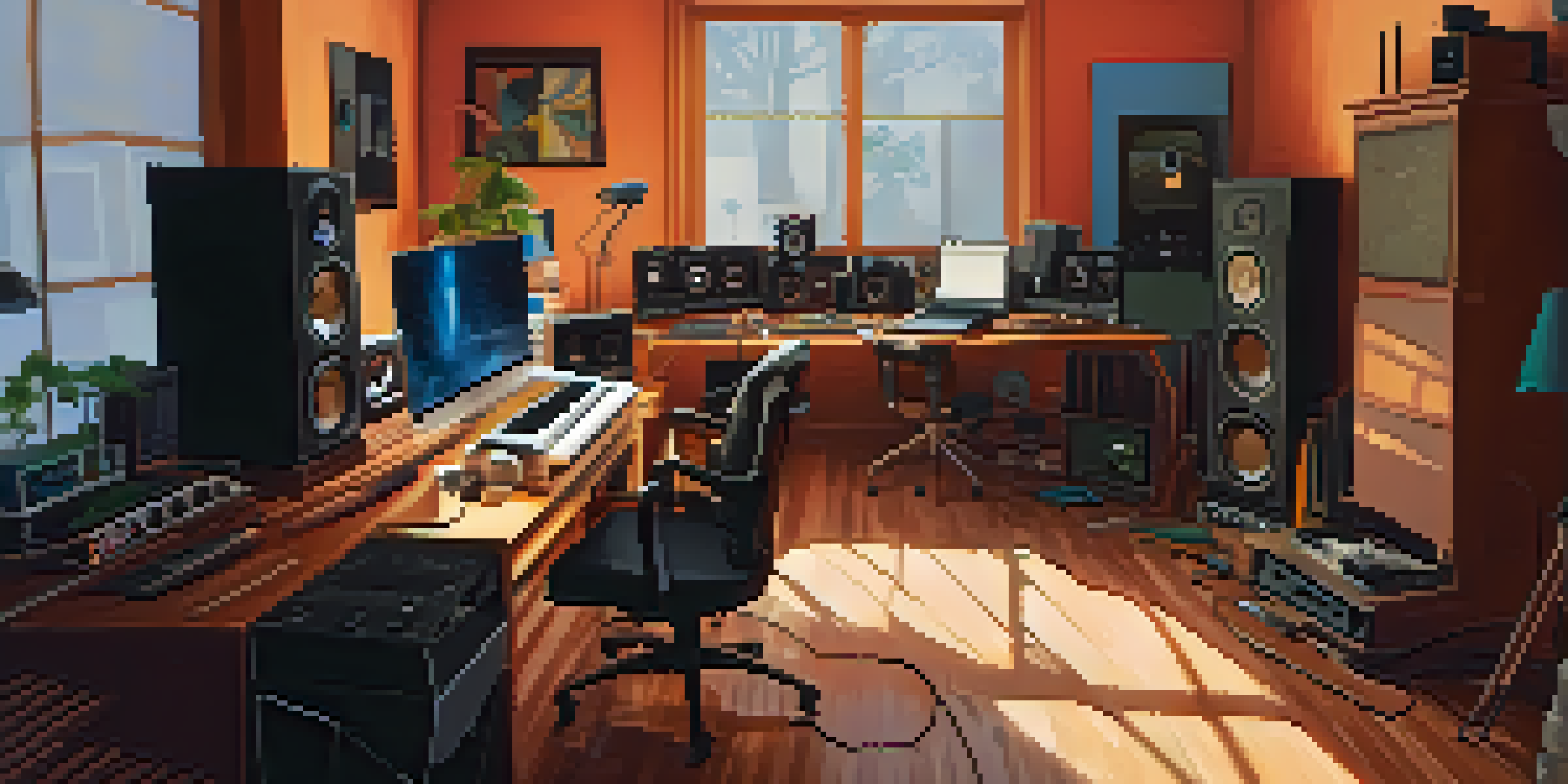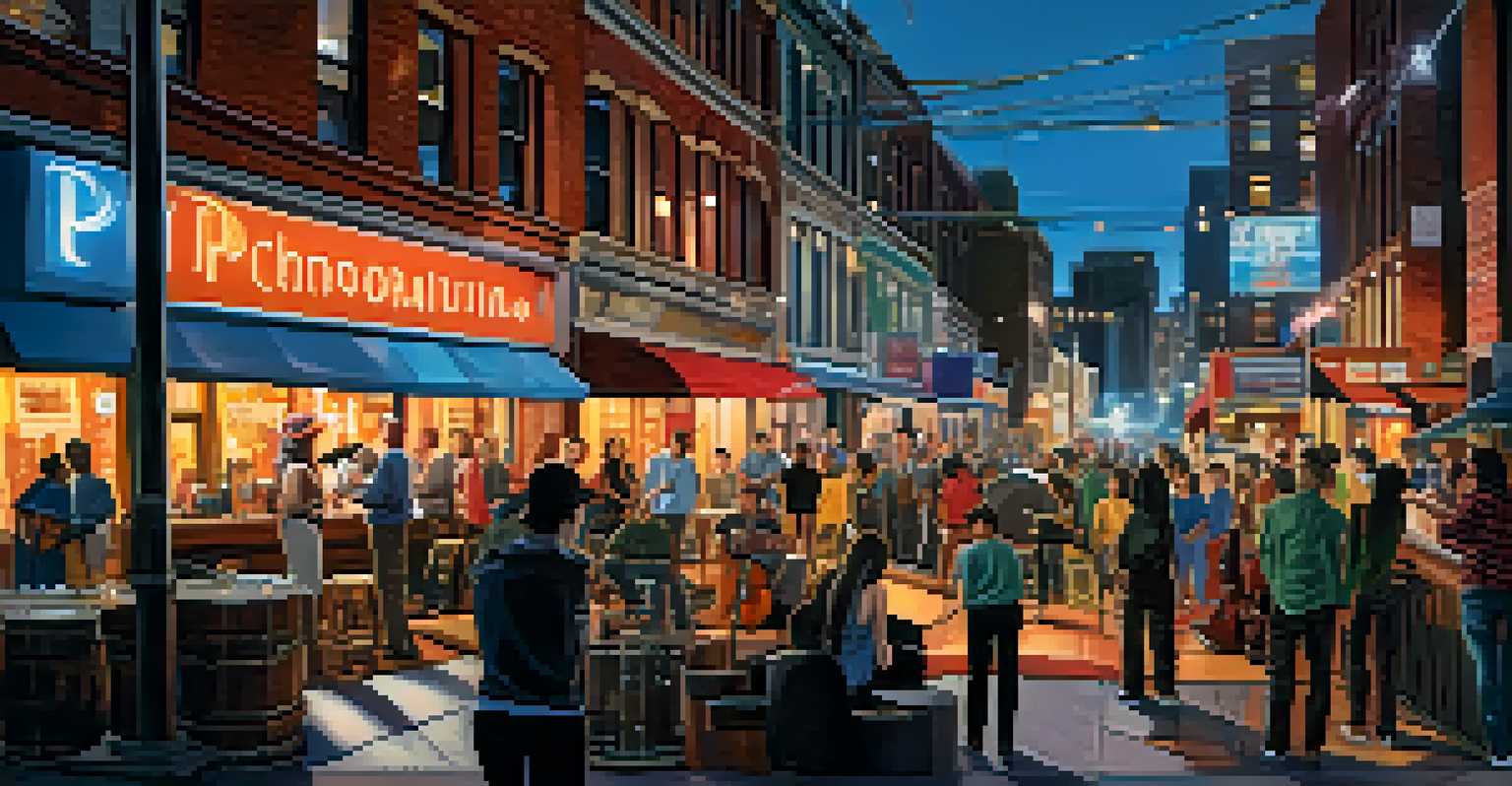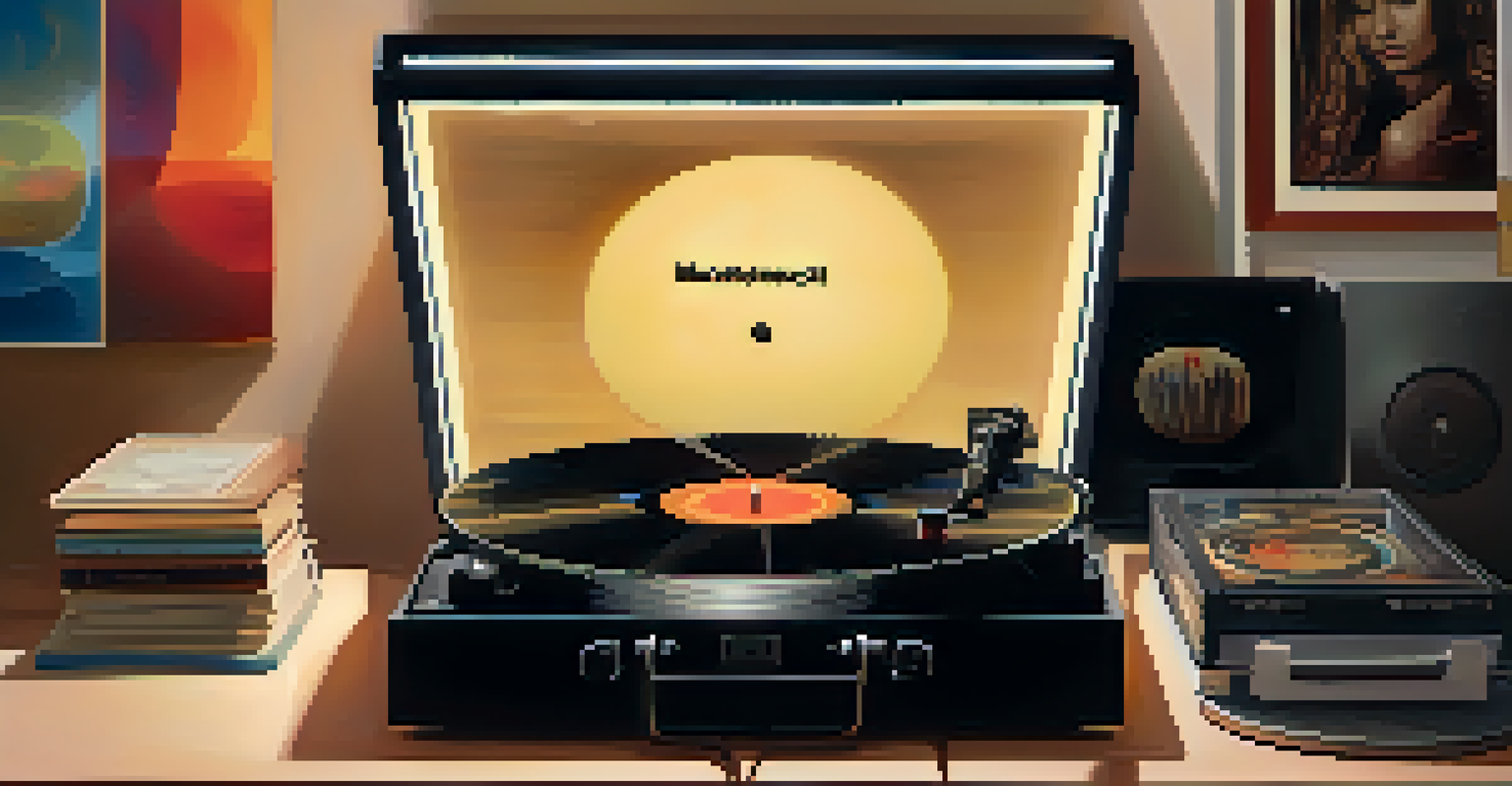The Rise of Independent Composers in Film Scoring

Understanding the Shift in Film Scoring Dynamics
The world of film scoring has undergone a significant transformation over the past few years. Traditionally dominated by big-name composers, the industry is now welcoming a wave of independent artists. This shift reflects a broader change in how films are produced and consumed, with independent films gaining traction in a competitive market.
Music is the shorthand of emotion.
With advances in technology, independent filmmakers can now create quality content without the backing of major studios. This democratization of film has paved the way for independent composers to showcase their talents, often bringing fresh and innovative sounds to the cinematic landscape. As a result, audiences are exposed to diverse musical styles that might not have reached them otherwise.
Moreover, the rise of streaming platforms has provided independent filmmakers with an accessible distribution model. This has further fueled the demand for unique scores, allowing independent composers to thrive in an environment that values creativity over convention.
The Role of Technology in Composer Independence
Technology plays a crucial role in the rise of independent composers in film scoring. With digital audio workstations (DAWs) and affordable software, creating music is more accessible than ever. Independent composers can produce high-quality scores from their home studios, eliminating the need for expensive recording sessions typically associated with larger projects.

Additionally, platforms like SoundCloud and YouTube allow these composers to share their work widely, reaching audiences without the need for a traditional record label. This easy access to distribution means that talented composers can build a following and gain recognition based on their merit rather than relying on industry connections.
Independent Composers on the Rise
The film scoring landscape is increasingly dominated by independent composers who bring fresh and innovative sounds to the industry.
As technology continues to evolve, the gap between independent and mainstream composers narrows, enabling a new generation of artists to redefine film scoring. The ability to collaborate remotely with filmmakers from across the globe has also transformed how scores are created, fostering a more inclusive and collaborative environment.
The Impact of Streaming Platforms on Film Music
Streaming platforms have revolutionized not only how films are consumed but also how scores are created and appreciated. With the rise of services like Netflix, Amazon Prime, and Hulu, there’s a heightened demand for original scores that resonate with diverse audiences. This creates opportunities for independent composers to contribute their unique sounds to a variety of projects.
The future belongs to those who believe in the beauty of their dreams.
These platforms often prioritize fresh, original content, leading to collaborations with independent filmmakers eager to create distinctive works. As a result, independent composers find themselves at the forefront of innovative storytelling, crafting scores that enhance the emotional depth of films and series. This symbiotic relationship benefits both parties, as filmmakers gain captivating soundtracks while composers gain visibility.
Moreover, the increased consumption of content on these platforms means that scores are being heard by wider audiences than ever before. Independent composers can capitalize on this exposure, potentially leading to larger projects and collaborations in the future.
Diverse Musical Influences from Independent Composers
One of the most exciting aspects of the rise of independent composers is the diversity of musical influences they bring to the table. Unlike traditional film composers who might adhere to established norms, independent artists often explore various genres and styles. This experimentation results in scores that can be as eclectic as the films themselves.
For example, an independent film might incorporate elements of world music, electronic sounds, or even hip-hop, reflecting the unique cultural backgrounds of its creators. This fusion of styles not only enhances the storytelling but also resonates with audiences on a personal level, making the films more relatable.
Technology Empowers New Artists
Advancements in technology allow independent composers to produce high-quality scores from home, making music creation more accessible.
As more independent composers emerge, we can expect to hear an even broader array of musical styles in film. This diversity enriches the cinematic experience, allowing filmmakers to tell their stories in ways that resonate more deeply with viewers.
Challenges Facing Independent Composers Today
Despite the growing opportunities, independent composers face several challenges in the film industry. One major hurdle is the competition from established composers who still hold significant sway in mainstream cinema. Even with the rise of independent films, it can be daunting for newcomers to break through and be recognized.
Additionally, independent composers often work with limited budgets, which can restrict their ability to realize their artistic visions fully. They may need to compromise on certain aspects of the score due to financial constraints, which can be frustrating for those who want to push creative boundaries.
Finally, many independent composers juggle multiple roles, often taking on the responsibilities of marketing and self-promotion. This can take time away from their creative process, making it difficult to focus solely on composing. Balancing artistry with the demands of the industry is a constant challenge for these talented individuals.
Success Stories of Independent Composers
There are numerous success stories of independent composers who have made a significant impact in the film scoring world. Take Hildur Guðnadóttir, for example; her haunting score for 'Joker' garnered widespread acclaim and won an Academy Award. Her journey from independent projects to mainstream recognition highlights the potential for independent composers to achieve great success.
Similarly, composers like Nicholas Britell, known for his work on 'Moonlight' and 'If Beale Street Could Talk,' have also transitioned from the independent scene to larger platforms. Their unique voices and ability to create emotionally resonant scores demonstrate that independent composers can produce work that resonates deeply with audiences and critics alike.
Diversity Enriches Film Scores
Independent composers introduce a variety of musical influences, resulting in eclectic scores that enhance storytelling and resonate with audiences.
These success stories serve as inspiration for emerging independent composers, showing that with talent, perseverance, and a bit of luck, it’s possible to carve out a niche in this competitive industry. The triumphs of these artists also contribute to the growing acceptance of independent voices in film scoring.
The Future of Independent Composers in Film Scoring
Looking ahead, the future of independent composers in film scoring appears bright. With the continued rise of independent films and the increasing demand for original content, there are ample opportunities for these artists to shine. As filmmakers seek unique and compelling scores, independent composers are well-positioned to meet this demand and contribute to the evolving landscape of film music.
Moreover, as audiences become more accustomed to diverse musical styles, there’s a greater appreciation for the creativity and innovation that independent composers bring. This shift could lead to even more collaborations between independent filmmakers and composers, fostering an environment where artistic expression thrives.

Ultimately, the rise of independent composers is not just a trend; it's a movement that reflects a broader cultural shift within the film industry. As these artists continue to challenge the status quo, they will undoubtedly shape the future of film scoring for generations to come.